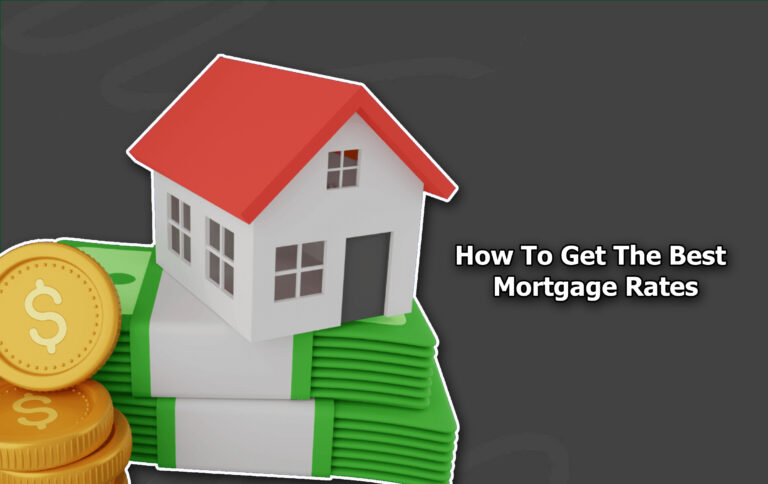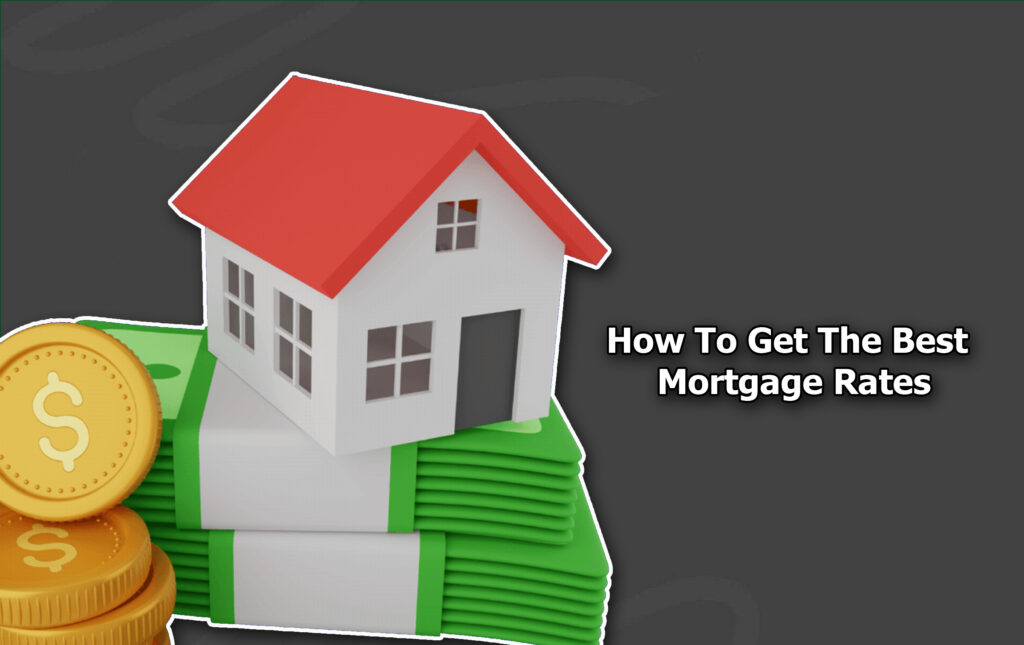
How can I get the best mortgage rates? Getting a mortgage is a big financial move, and the interest rate you get plays a major role in how much you’ll end up paying each month, and over the long run.

Even a small change in your mortgage rate can mean big savings or extra costs. That’s why it’s so important to shop smart and know what factors can help you score the best deal.
Whether you’re buying your first home, moving to a new place, or thinking about refinancing, your goal is the same: get the lowest rate possible.
But how do you actually do that? Mortgage rates are always changing, and they’re based on a mix of things, like your credit score, income, loan type, and even the overall economy.
While you can’t control everything, there are steps you can take to improve your chances.
In this blog post, we’ll walk you through what affects mortgage rates and share simple tips to help you find the best rate available, so you can save money and feel confident about your loan.
What Affects Mortgage Rates?
Before you can get the best rate, it helps to know what lenders look at when deciding how much interest to charge you. Here are the main things that affect your mortgage rate:
Your Credit Score
This is a big one. The higher your credit score, the more likely you are to get a low interest rate. Lenders see a strong credit score as a sign that you’re responsible with money and less likely to miss payments.
Down Payment Amount
Putting more money down can work in your favor. If you can afford a bigger down payment; say 20% or more; you might be offered a better rate, because the loan is less risky for the lender.
Loan Type and Term
The type of loan you choose (like fixed-rate vs. adjustable-rate) and how long the term is (15-year vs. 30-year) can affect your rate. Shorter terms usually come with lower rates, but higher monthly payments.
Debt-to-Income Ratio (DTI)
This is how much of your income goes toward paying off debt. If you already have a lot of monthly debt payments, lenders might see you as a risk, which can mean a higher rate.
The Economy
Mortgage rates also depend on the economy; like inflation, the Federal Reserve’s decisions, and overall demand for loans. When rates go up nationwide, it affects everyone.
Location and Property Type
Where you’re buying and what kind of property you’re financing can impact your rate. Investment properties or vacation homes usually come with higher rates than primary residences.
How To Get the Best Mortgage Rates
Now that you know what affects your mortgage rate, here are some smart steps you can take to lock in the lowest one possible:
Improve Your Credit Score
If your credit isn’t in great shape, take some time to build it up. Pay your bills on time, lower your credit card balances, and don’t open any new accounts before applying for a mortgage.
Even a small increase in your credit score can help lower your rate.
Save for a Bigger Down Payment
If you can, try to save up for a larger down payment. Not only will this lower your rate, but it can also help you avoid things like private mortgage insurance (PMI), which adds to your monthly cost.
Shop Around and Compare Lenders
Don’t just go with the first lender you find. Get quotes from banks, credit unions, and online lenders. Rates can vary a lot, and even a small difference can save you thousands over the life of your loan.
Consider a Shorter Loan Term
A 15-year mortgage will usually have a lower interest rate than a 30-year one. Yes, your monthly payments will be higher, but you’ll pay off your home faster and save big on interest.
Buy at the Right Time
Mortgage rates go up and down. If you’re not in a rush to buy, keep an eye on the market. You might get a better deal if you wait for rates to drop or for the housing market to cool down a bit.
Lock in Your Rate
Once you find a good rate, ask your lender if you can lock it in. This guarantees that your rate won’t change before closing, even if the market shifts.
Bottom Line
Getting the best mortgage rate isn’t just about luck; it’s about being prepared. By working on your credit score, saving for a down payment, and shopping around for lenders, you can put yourself in a strong position to secure a better deal.
Even a slightly lower rate can save you thousands over time, so it’s worth the effort. Take your time, stay informed, and don’t be afraid to ask questions.
A little research can go a long way when it comes to getting a mortgage that truly fits your budget.